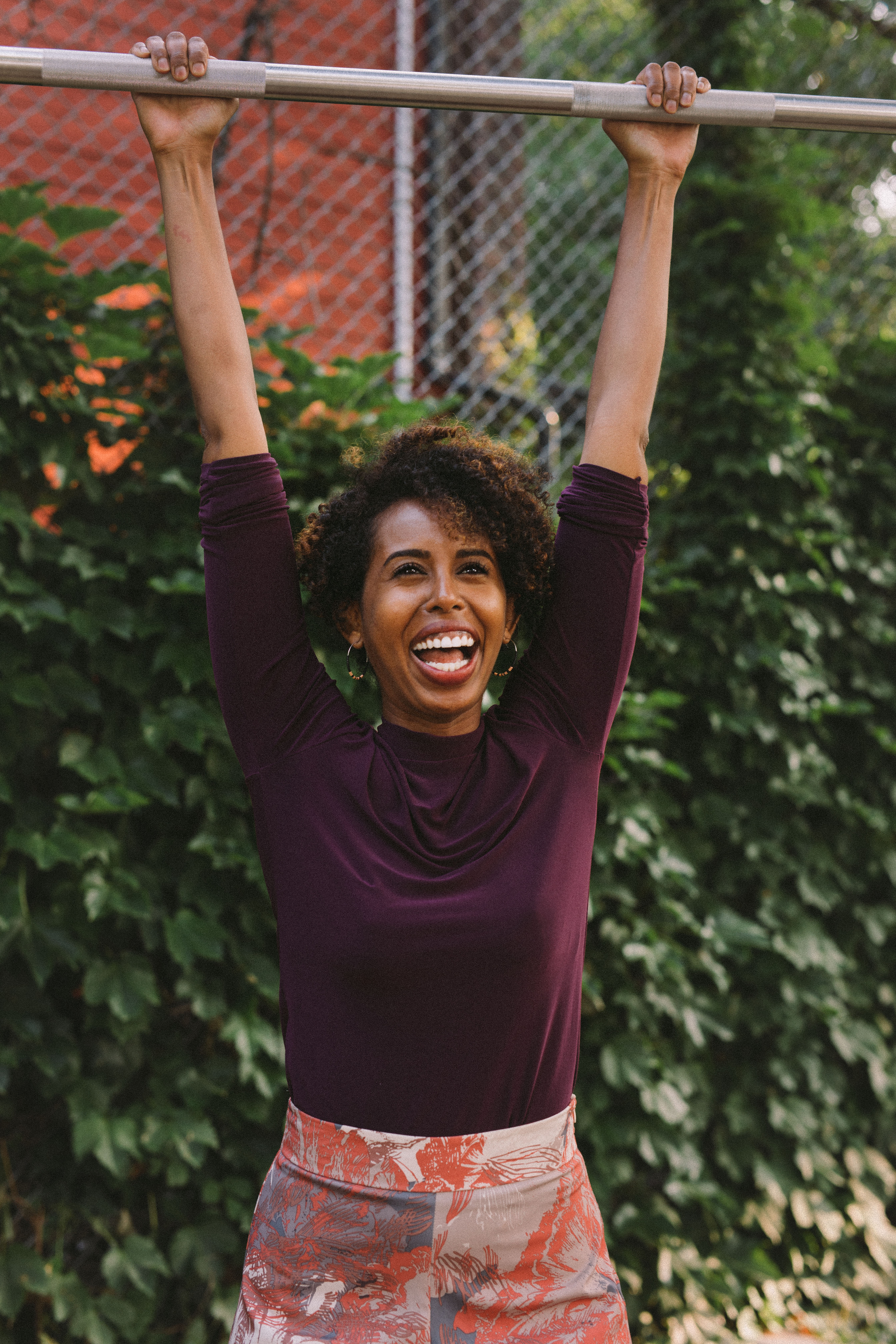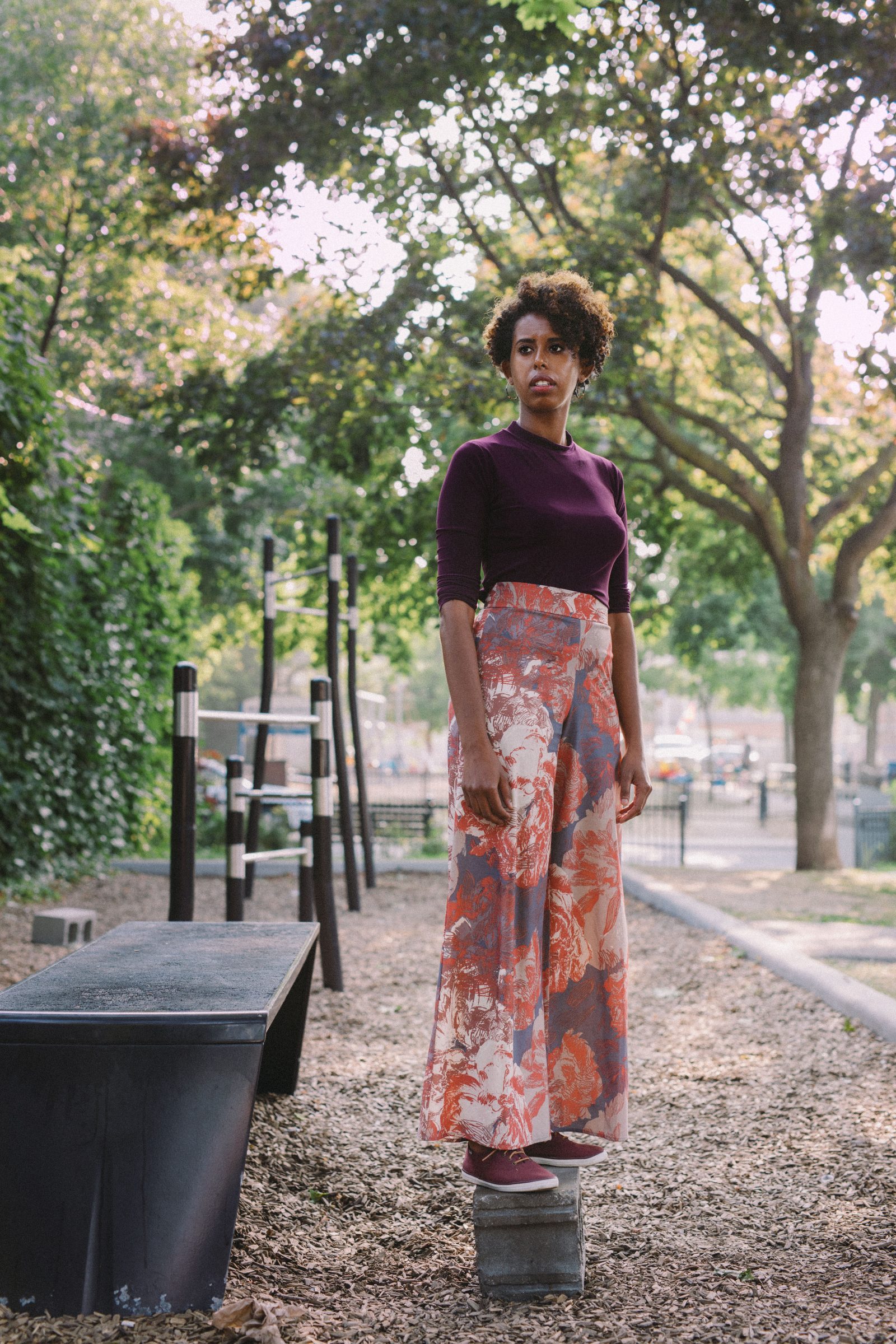Arij Elmi gained the courage to speak up against racist comments after studying self-defense. Now she teaches other women to do the same
By Megan Easton for University of Toronto Magazine
The sounds of kids playing in Christie Pits Park on a cloudless July morning grow suddenly quiet every time Arij Elmi yells. She’s in a shady spot near the playground, demonstrating self-defence moves such as the “hammer fist” and “knife hand,” punctuating each strike with a powerful cry. “I found my voice again through teaching self-defence,” says Elmi, a PhD student at U of T’s Ontario Institute for Studies in Education, and a social worker.
She was a feisty kid, a larger-than-life extrovert who always said what she thought. Then, in her preteens, she turned inward, especially when confronted with racist and Islamophobic comments. As a Muslim woman who wore the hijab until recently, Elmi has heard a lot of these in her personal and professional life.
There was the man on the train who helped lift her bag, then asked loudly if it contained a bomb; the client who refused to work with a Muslim social worker; and the stranger who called her “raghead” – just to name a few incidents in a long list. Her experience reflects the alarming rise of police-reported hate crimes against Muslims in Canada in recent years: there was a threefold increase between 2012 and 2016, the most recent year for which statistics are available.
“I was always attracted to the idea of self-defence, but the emotional, not physical, side,” says Elmi, 30, who is researching Islamophobia in the Social Justice Education stream at OISE. “I wanted to speak up when people said ignorant things. Instead, I’d go home and feel terrible.”
Then she discovered Wen-Do, a form of physical and verbal self-defence for women, as a master’s student at the University of Windsor. It not only teaches women techniques to ward off attackers, but helps them feel more confident in all kinds of threatening situations. As Elmi became more immersed in the Wen-Do community and eventually earned her instructor certification, she developed the courage to call people out for racist behaviour. And she wanted to help other women do the same.
Elmi knew from personal experience that many Muslim women, especially those who wore a hijab or niqab, were feeling unsafe in public spaces and wanted a better way to cope than avoiding the subway, for example, or wearing hats. In 2016, with support from crowdfunding, she and fellow instructors held six free Wen-Do workshops for Muslim women and girls in the Greater Toronto Area. Since then, she’s taught all over the city, including at U of T, through the Toronto-based Wen-Do Women’s Self-Defence organization. “In the classes, we challenge the construction of Muslim women as being meek and passive,” says Elmi, adding that she tells women they deserve to know how to protect themselves – just like they want their daughters to know.

Research shows that women who fight back physically or verbally are more likely to stop an assault. Above all, Wen-Do teaches women that it’s OK to be loud, yell, scream and generally forget about being “nice” if they feel threatened. Their voices can either surprise attackers or draw in bystanders. Physical self-defence skills include strikes (such as “eagle’s claw”), releases from holds (“hammer-fist wrist release”) and blocks. Elmi says the participants often express their gratitude to her not only for giving them practical skills, but a venue for open discussion. “There are few opportunities where women, and particularly Muslim women, are able to get together and talk about how sexism, racism, xenophobia and Islamophobia affect our daily lives,” says one student.
Today, Elmi takes a feminist, anti-oppressive approach in her practice. She’s been a mental health crisis worker as well as a therapist for children and families. Elmi now works part time at Hard Feelings, a Toronto practice that provides low-cost, short-term mental health services.
Most of us know what coercion feels like and what abuse is. My role is to support women as they assert themselves
“I love frontline counselling, and I see great parallels between it and teaching self-defence,” says Elmi. “In the end, I’m trying to help people get past their emotional blocks. Most of us know what coercion feels like and what abuse is. We don’t need more knowledge. My role is to find out what’s getting in their way, and support them as they assert themselves. Watching women build self-knowledge and self-confidence is beautiful.”

